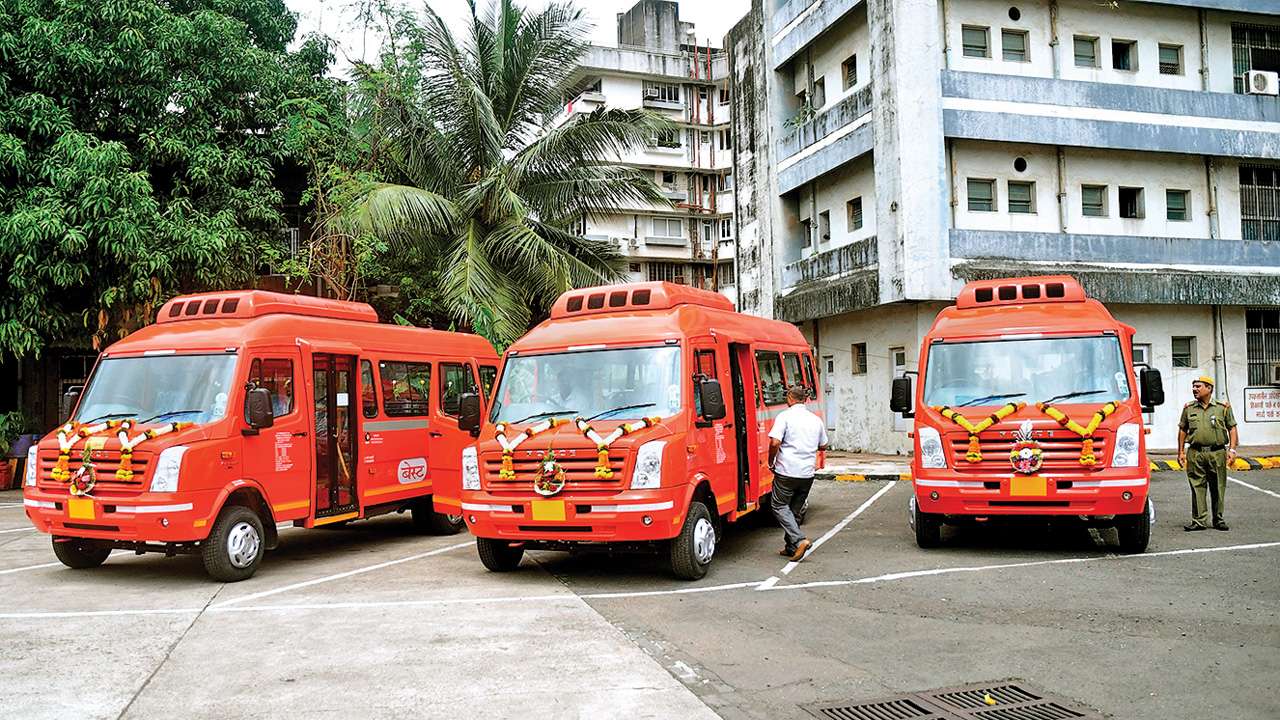The GST-Authority for Advance Rulings (GST-AAR), Maharashtra bench, held that BEST would be liable to pay Goods and Services Tax (GST) at the rate of 12% to the operator of a Mumbai-based company, which had ‘rented’ out its mini-AC buses as the effective possession and control is with BEST.
This rate on services came into force from October 13, 2017, the earlier rate of GST on services was 18%.
BEST had invited tenders in August 2019, for operation of 500 mini-AC buses in Mumbai and its suburbs. The tender of MP Enterprises and Associates was accepted.
The company owned the buses, provided drivers and also incurred expenses on fuel and maintenance. For all these services provided by it, BEST paid the company service charges on kilometre-basis.
MP Enterprises raised periodical invoices on BEST along with GST at the rate of 12%. It was of the view that its services of ‘renting’ out the buses constituted a ‘supply’ which is taxable under GST laws. To substantiate that the transaction is ‘renting of buses’, it contended that effective possession and control is with BEST.
The buses are used by BEST and ply as per its directions on the prescribed routes and under its control. All the buses are painted red and have ‘BEST’ logo on all sides. The drivers are also under the administrative control of BEST, which decides the routes. The bus operating company is not free to use these buses for any other purpose.
However, BEST (the service recipient) was of the view that services provided by the bus operating company are exempt from GST in view of a notification dated June 28, 2017. This notification exempted “services by way of giving on hire to a state transport undertaking, a motor vehicle meant to carry more than 12 passengers.” This led to the bus operating company approaching the GST-AAR for a ruling.
The GST-AAR also observed that the payment for supply of services to the bus operating company is made by BEST and not the individual passengers. Thus, it concluded that the transaction was one of renting of motor vehicles, which was a taxable activity under the GST laws. ( Source : timesofindia.com)
Our comments: Renting vs Hiring of Motor Vehicles
As can be inferred from the above case-law that the classification of any service as renting or hiring of motor vehicle impacts the taxability of such transaction. As in case a transaction is hiring and classified under chapter heading 9966 i.e. Services by way of giving on hire – (a) to a state transport undertaking, a motor vehicle meant to carry more than twelve Passengers the same will be exempt. Whereas in case it is renting it would fall under Sr. No. 10, Heading No. 9966 sub-clause (ii) / (iii) as rental Service of transport vehicles with/without operators, and therefore would attract GST @ 18%.
The AAR in the above-discussed case has given its ruling considering the difference between Hiring vs Renting. In this regard the Hon’ble Uttrakhand High Court in the case of Commissioner of Customs & Central Excise Vs Sachin Malhotra, Raj Kumar Taneja, and M/s Shiva Travels [2014-TIOL-2039-HC-UTTRAKHAND-ST] had elaborated the difference between renting and hiring for the purpose of levying service tax under the category of “Rent a cab services” which is also relevant in present day GST context.
- Hiring means when the owner of the vehicle, who may or may not be the driver, will provide the services while retaining the control and possession of the vehicle with himself. The customer is merely enabled to make use of the vehicle by travelling in the vehicle and is expected to pay metered charges which are usually collected on the basis of the number of kilometres travelled. Hence, the essence of hiring is that the control and possession of the vehicle is not transferred to the person hiring the vehicle.
- Renting refers to a situation wherein the control and possession of the vehicle is being transferred by the owner to the person hiring the vehicle thereby meaning that the hirer is endowed with the freedom to take the vehicle wherever he desires with the obligation to keep the owner informed of his movements from time to time.
Further ruling of Maharashtra AAR in the case of SST Sustainable Transport Solutions India (P.) Ltd [2018] 100 taxmann.com 122 is also relevant here. In this case the Nagpur Municipal Corporation was entrusted the task of implementing the AC Green Buses and for this purpose it sought service provider for Purchase, Supply, Operation, Maintenance etc. of AC Green Buses. The applicant provided Buses along with Driver, Fuel & Maintenance for use of General Public at Large Services for Transport of General Public to Nagpur Municipal Corporation ( “NMC”). NMC paid to the applicant Service Charges calculated as per agreement on the Total Run effective kilometers and NMC collects the fare from the passengers.
The AAR observed that to be falling under the entry of ‘giving on hire’, and in order to be exempt ,the transaction has to be in the nature of hiring of vehicle. The paramount question is whether classification of transaction is of the nature of hiring services. In a lease, ownership lies with the lessor. The lessee has the right to use the equipment and does not have the option to purchase. Whereas in hire purchase, the hirer has the option to purchase. The hirer becomes the owner of the asset/equipment immediately after the last instalment is paid. AAR followed the ratio laid down in the matter of Kotak Mahindra Finance Ltd. v. Dy. CIT [2003] 130 Taxman 422/[2004] 265 ITR 114 by Hon’ble Bombay High Court. Therefore, AAR observed that the present transaction does not fall under the category of services by way of giving on hire to a state transport undertaking.
The AAR held in this case that subject matter of the agreement is for transfer of the right to use Buses for any purpose i.e. for transportation purpose and for a specified period of 15 years for cash. Thus, as per sub-clause (f) of clause 5 of Schedule II appended to both, the CGST Act, 2017 and the MGST Act, 2017 the subject activity of the applicant would be considered as Supply of Services.
It was adjudged by AAR that the applicant is rendering services to NMC by way of giving out on rent, buses which are further used by NMC for transportation of passengers. Such renting of Buses by the applicant squarely falls under Sr. No. 10, Heading No. 9966 sub-clause (iii) as rental Service of transport vehicles, in this case with operators and therefore attracts CGST and SGST @ 9% each on remuneration received for such services rendered by the applicant.
***
Follow us for free tax updates : facebook Twitter
Subscribe our portal and get FREE Tax e-books , quality articles and updates on your e-mail.
Resolve your GST queries from national level experts on GST free of cost.
CA. Mohammad Salim is an ICAI award winning Chartered Accountant having rich experience of more than 20 years in the field of indirect taxes. He is the Member, Indirect Taxes Committee of PHD Chamber of Commerce and Industry. He is author of four successful books on GST published by Taxmann Publication and is also GST expert on taxmann portal.




